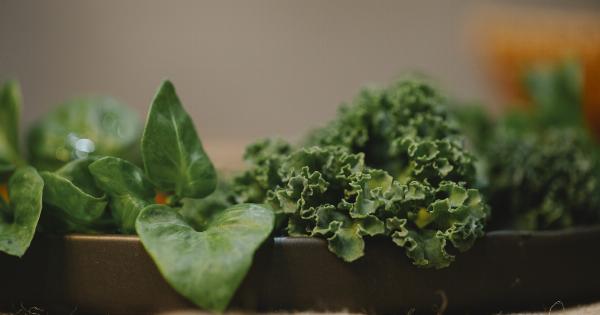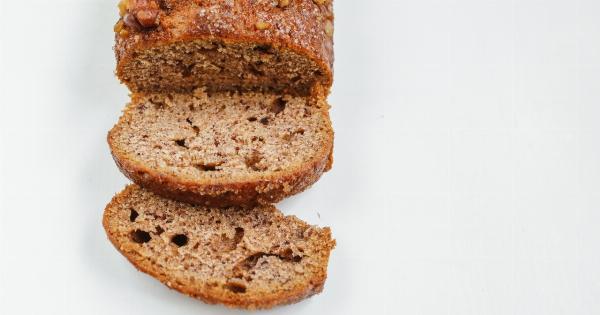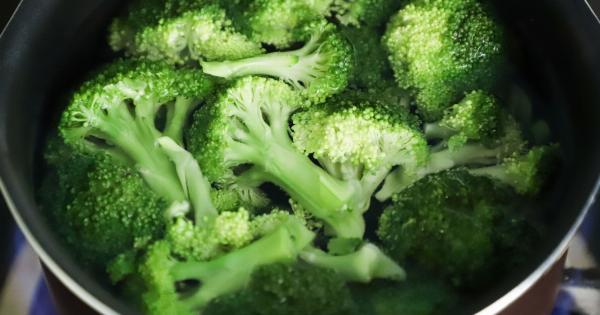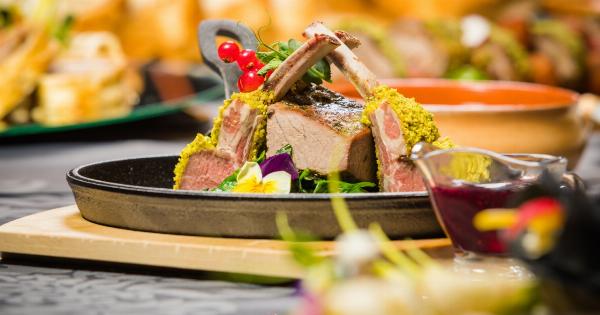Water is vital for our overall health and well-being. It plays a crucial role in various bodily functions such as digestion, metabolism, circulation, and maintaining a stable body temperature.
It is recommended that we drink at least 8 cups or 64 ounces of water per day to keep our bodies hydrated. But is there a science behind drinking water with your meals? Let’s find out.
Hydration and Digestion
One of the main benefits of drinking water with your meals is improved digestion. When you consume food, your body needs sufficient moisture to break down the food particles and absorb the nutrients efficiently.
Water acts as a lubricant, helping to soften the food and aiding in its passage through the digestive tract.
Drinking water while eating also promotes the production of saliva and digestive enzymes, which further enhance the digestion process. Adequate hydration prevents constipation and ensures smooth bowel movements.
Weight Management
Another advantage of drinking water with meals is its potential impact on weight management. Research suggests that drinking water prior to meals can increase satiety and reduce overall calorie intake.
Water fills up your stomach, making you feel fuller, which may prevent overeating.
Additionally, water has zero calories, compared to sugary beverages like soda or juice, making it a healthier and more weight-friendly choice.
By replacing high-calorie drinks with water, you can effectively manage your calorie intake and support your weight loss or weight maintenance goals.
Improved Nutrient Absorption
Maximizing nutrient absorption is crucial for optimal health. Drinking water with your meals can help in this process. Water helps to dissolve minerals and vitamins from the food you consume, allowing your body to absorb them efficiently.
Water also aids in the breakdown of macronutrients such as carbohydrates, proteins, and fats. It helps transport these nutrients to cells, where they can be utilized for energy production, tissue repair, and various other bodily functions.
Preventing Dehydration
Dehydration occurs when the body loses more fluid than it takes in. Inadequate water intake can lead to increased thirst, dry mouth, fatigue, and impaired cognitive function.
By drinking water with meals, you can ensure that you meet your daily hydration needs and prevent dehydration.
It’s essential to note that certain foods, such as salty or spicy dishes, can increase your body’s water needs.
Consuming water alongside these meals can help maintain the body’s fluid balance and prevent dehydration-related complications.
Hydration and Exercise
In addition to the benefits mentioned above, proper hydration is crucial during exercise. Athletes and active individuals often lose significant amounts of water through sweat.
Replenishing this lost fluid is important to avoid dehydration and maintain optimal performance.
Drinking water with meals can be an effective way to ensure you are adequately hydrated throughout the day, including during your workout sessions.
Remember to also drink water before, during, and after exercise to prevent dehydration and support your physical performance.
Timing and Quantity
When it comes to drinking water with meals, the timing and quantity are important factors to consider. It’s generally recommended to drink water about 30 minutes before a meal to avoid diluting stomach acids and impairing digestion.
During a meal, sipping water is generally beneficial. This enhances the breakdown of food, nutrient absorption, and helps prevent dry mouth.
However, it’s advisable not to consume excessive amounts of water during a meal, as it may lead to bloating or discomfort.
After a meal, you can continue to drink water to replenish your hydration levels. It’s best to wait a bit before consuming large amounts of water to allow digestion to progress without interruption.
Water Temperature
While drinking water at any temperature can help hydrate your body, the temperature of water can also influence digestion and satisfaction.
Some people find that drinking warm or room temperature water alongside a meal aids in digestion and provides a more satisfying experience.
On the other hand, others prefer cold water with their meals, especially during hot weather or spicy meals, as it can provide a refreshing effect.
Ultimately, the choice of water temperature is subjective, and you can experiment to find what works best for you.
Listening to Your Body
It’s important to listen to your body’s signals when it comes to drinking water with meals. Everyone’s hydration needs and preferences may vary, and it’s essential to find a balance that supports your overall well-being.
If you experience bloating, discomfort, or any negative digestive symptoms after drinking water with your meals, try adjusting the timing or quantity. It may take some trial and error to find the optimal approach that works best for your body.
Conclusion
Drinking water with your meals offers numerous benefits, including improved digestion, weight management support, enhanced nutrient absorption, and prevention of dehydration.
The timing, quantity, and temperature of water can vary based on individual preferences and needs. Stay mindful of your body’s signals and make adjustments accordingly to optimize your hydration and overall health.





























